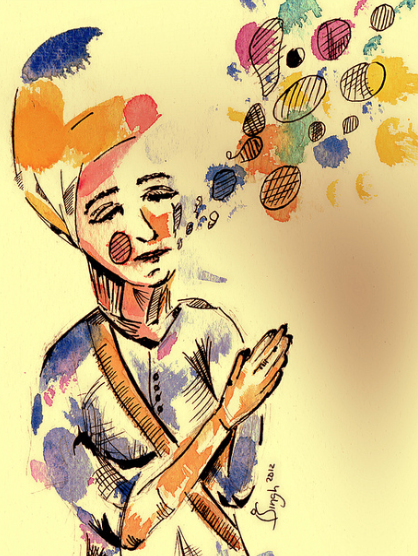At last, we’re all beginning to see the intimate and dynamic relationship between what goes on with our feelings and thoughts and what’s happening in the body.
A Time magazine article reported that happiness, hopefulness, optimism and contentment: “appear to reduce the risk or limit the severity of cardiovascular disease, pulmonary disease, diabetes, hypertension, colds and upper-respiratory infections; while depression—the extreme opposite of happiness—can worsen heart disease, diabetes and a host of other illnesses.”
Illness is very real, accidents happen and medicine can certainly help. Deb’s appendix recently burst and she’s immensely grateful for the medical intervention that saved her life. But the role of the mind and emotions in our state of health appears to be a vital one, and by understanding this relationship, we can claim a greater role in our own wellbeing. It is only a part of the overall picture, but it’s the part that’s invariably overlooked.
In his book “Ageless Body, Timeless Mind,” Deepak Chopra writes:
“A basic emotion such as fear can be described as an abstract feeling or as a tangible molecule of the hormone adrenaline. Without the feeling there is no hormone; without the hormone there is no feeling…The revolution we call mind-body medicine was based on this simple discovery: wherever thought goes, a chemical goes with it.”
Just as all parts of our being interact and work together, if we ignore the role our feelings and thoughts play, we’re ignoring the role they have. And that just may be what needs to be fixed the most.
Generally speaking, we think of our bodies and minds as separate systems and believe they function, for the most part, independently. Yet can you remember the last time you had an interview for a job or went on a first date with someone you were really trying to impress? In either case, no doubt you wanted to appear calm and collected, but at the same time, you probably felt nervous and self-conscious.
Can you recall how your body felt? Self-consciousness tightens the buttock muscles (so we literally sit on our tension). We sweat more than usual, may feel slightly nauseous and probably fluff our words when we want to appear suave and confident.
In other words, our emotions affect us physically. It might be easy to understand that a scary thought gets our heart beating faster, but it can be harder to realize that loneliness, sadness or depression can also affect us physically, and when it comes to more complex emotions or illnesses few of us consider our emotions to have any relevance.
In Woody Allen’s movie, “Annie Hall,” Diane Keaton wants to know why he isn’t angry. “I don’t get angry,” Allen replies, “I grow a tumor instead.”
Understanding the body-mind relationship won’t necessarily cure all our physical difficulties, but by learning the language of symptoms and illness we can discover what is being repressed or ignored in our psyche and emotions, and how this is influences our wellbeing. From this vantage point, we discover the extraordinarily intimate two-way communication between our body and mind that affects both our physical state and our mental and emotional health.
Discover how your mind and emotions affect your body:
What happens when you get irritated or frustrated?
Where do you experience those feelings in your body? If you’re stuck in a traffic jam, a client is late for an appointment, or the children keep interrupting your conversation, what happens to your breathing, your shoulders or your stomach muscles? Does your breathing become short and shallow? Do the muscles tighten?
How does worry affect you?
What happens in your body when you’re worried or anxious about something like a child who is late coming home, a presentation you have to give, or the results of your partner’s blood test? Where do you hold the anxiety? What physical effect does it have? Do fears about the future create a pain in your stomach or do your legs ache or feel tired?
How do you react when someone is angry with you?
If your boss or your partner shouts at you, what happens to your heart, your head, your insides? What do you do with angry feelings? Do you express them or is there somewhere you put them? Does your headache stem from your built-up unexpressed anger? Do you swallow hard, get a sore throat, clench your muscles, or get constipated?
How do memories affect you?
What happens when you recall past memories? Do you feel warm and relaxed or do you break out in a sweat and feel nervous? Pay particular attention to what happens when you recall unhappy memories like when a parent hit you or you were bullied at school. As you follow these memories, watch where in your body there’s a reaction, a tightening or nervousness.
Ask yourself about illnesses and injuries
Think back to past illnesses or times when you were hurt. Note the parts of your body that were involved. Have you always held your stomach muscles in tight? Have you always had recurring headaches? Have you always hurt on the same side of your body?
Use the answers you get from these questions to understand yourself more deeply. They may give you the clues you need to find your healing.
Authors: Ed & Deb Shapiro
Editor: Evan Yerburgh
Photo: used by permission of the authors
 Share on bsky
Share on bsky




Read 1 comment and reply